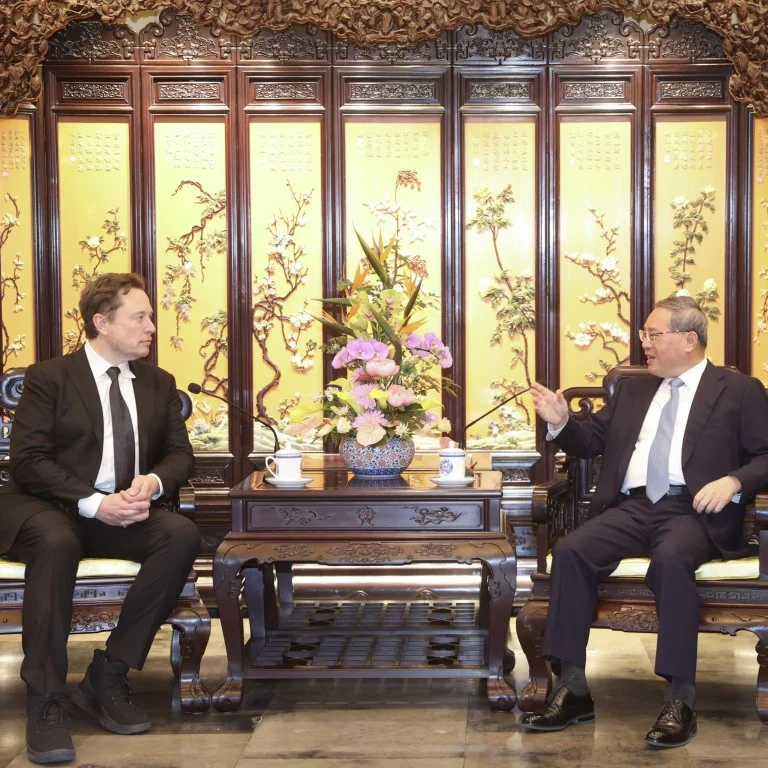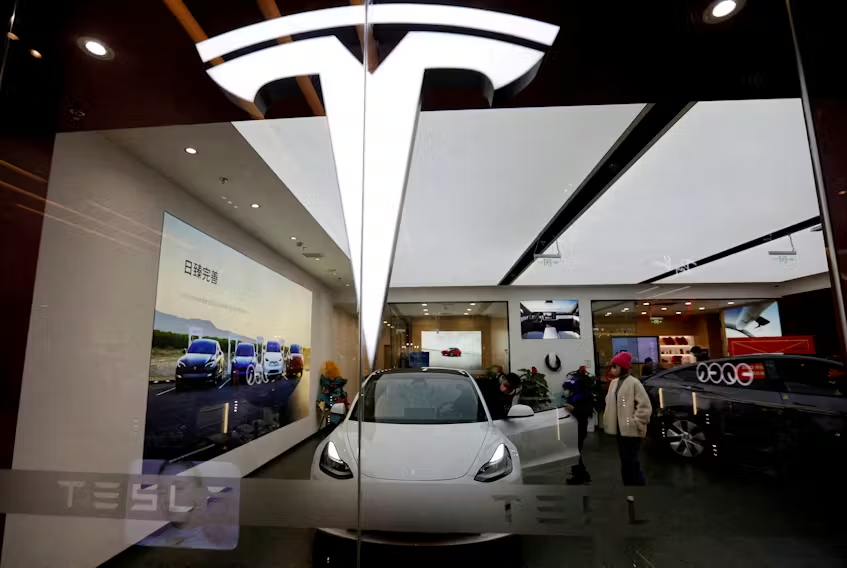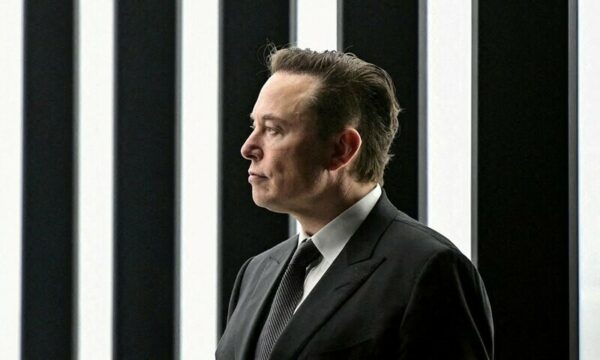Before we get right into breaking down the details from Tesla in this post, you might be interested in reading the previous post we published on the Tesla upgrade on the Tesla Model 3 here. Do well to leave a comment.
Elon Musk’s recent visit to China has garnered attention as Tesla seeks to advance its self-driving technology rollout in the country. This blog post delves into the details of Musk’s visit and the developments surrounding Tesla’s efforts to introduce its Full Self-Driving (FSD) software in China.

Elon Musk’s Tesla: Overcoming Regulatory Hurdles
During Musk’s visit, Tesla achieved significant milestones in overcoming regulatory hurdles for its FSD software in China. The company secured a deal with Baidu, China’s largest search engine, to use its mapping data, addressing concerns about data security and regulatory compliance.
Additionally, all cars produced at Tesla’s Shanghai Gigafactory were declared compliant with China’s data security requirements, allowing Tesla vehicles access to previously restricted areas near government and military properties.
Positive Government Interactions
Musk’s meetings with Chinese officials, including Premier Li Qiang, showcased positive government interactions regarding Tesla’s operations in China. Premier Li praised Tesla’s Gigafactory in Shanghai as a success story for foreign enterprises in China, indicating a supportive stance from Chinese authorities towards Tesla’sendeavours in the country’s automotive market.
Progress towards FSD Rollout
Reports indicate that Chinese officials have tentatively approved Tesla’s request to launch its FSD software in the country. While this progress does not grant immediate access to FSD, it reflects growing confidence from Beijing in Tesla’s capabilities. However, competition from domestic automakers and concerns about the reliability of self-driving software continue to shape the regulatory landscape for FSD rollout in China.
Data Transfer Approval
In addition to FSD rollout, Musk seeks approval to transfer data collected in China abroad for training Tesla’s autonomous driving algorithms. This aspect of Musk’s discussions underscores the importance of data management and international collaboration in advancing self-driving technology.

Continued Progress and Challenges
While Tesla’s progress in overcoming regulatory hurdles and securing partnerships in China is commendable, challenges still remain on the path to full autonomy. The recent incidents involving crashes in both the United States and China have raised concerns about the safety and reliability of self-driving technology. These incidents have prompted regulators to proceed cautiously, emphasising the need for thorough testing and validation of autonomous systems before widespread deployment.
Rivalry and Competition
Tesla faces stiff competition from domestic Chinese automakers, such as Xpeng, who are also developing and rolling out similar autonomous driving features. The competition intensifies as these companies strive to gain an advantage in the rapidly growing electric vehicle market in China. While Tesla’s brand recognition and technological expertise provide it with a competitive edge, it must continue to innovate and demonstrate the superior performance and safety of its self-driving technology to maintain its leadership position.
Strategic Importance of China
China represents a strategically important market for Tesla, given its significant consumer base and growing demand for electric vehicles. Successfully navigating the regulatory landscape and establishing a strong presence in China’s automotive industry is crucial for Tesla’s long-term growth and sustainability. Musk’s visit and the progress made during his interactions with Chinese officials underscore the company’s commitment to expanding its foothold in the Chinese market and accelerating the adoption of its advanced technologies.
Future Outlook
As Tesla continues to pursue its self-driving technology rollout in China, it must remain vigilant in addressing regulatory concerns, fostering partnerships, and building trust with local stakeholders. The successful deployment of its full self-driving software in China would not only enhance Tesla’s competitive position but also contribute to the advancement of autonomous driving technology on a global scale. With ongoing advancements in artificial intelligence and sensor technology, the prospect of achieving fully autonomous vehicles is within reach, and Tesla is poised to play a leading role in shaping the future of transportation.
Read more on Washington Post
Read more on Indian Express and Reuters
Table of Contents


One Reply to “Elon Musk’s 2 Days visits to China; The good news and the great progress”